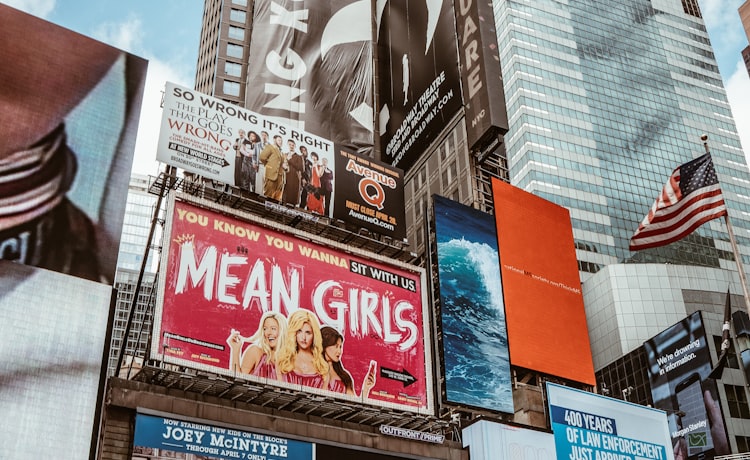cctv7的广告节目表
Introduction
CCTV7 is one of the most popular television channels in China, broadcasting a wide range of programs including news, documentaries, and entertainment shows. Amongst its programs, CCTV7 also airs a number of advertisement slots. In this blog post, we will take a closer look at CCTV7's advertisement program schedule, and explore the different types of advertisements that are broadcasted to the Chinese audience.

Types of Advertisements on CCTV7
Advertisements on CCTV7 can be categorized into product advertisements, service advertisements, public service announcements, and government propaganda. Product advertisements are the most common type of adverts, showcasing various consumer goods such as clothing, electronics, and vehicles. Service advertisements are usually related to financial and insurance services, while public service announcements promote health and safety campaigns. Government propaganda advertisements, on the other hand, promote the ideology and policies of the Chinese government.
Product advertisements are further divided into direct-response advertisements and image advertisements. Direct-response advertisements aim to generate an immediate response from viewers, encouraging them to make a purchase or visit a website. Image advertisements, on the other hand, focus on building brand awareness and creating a positive image for the product or company in the minds of viewers.

CCTV7 Advertisement Program Schedule
CCTV7 airs advertisements throughout the day, with the highest frequency during prime-time hours. The advertisement program schedule is divided into different time slots, with each slot having a specific duration and targeted audience. The morning time slots are usually aimed at housewives and the elderly, while afternoon and evening time slots are targeted towards a wider audience group, including working professionals and students.
Advertisements on CCTV7 are subject to strict regulations under the China Advertising Law and the State Administration for Market Regulation. Advertisements must be truthful, legal, and not misleading to the public. The use of superlatives such as"best" or"most" is strictly banned, and advertisers must provide scientific proof for their product claims. In addition, advertisements are not allowed to contain any content that is harmful to the physical and mental health of the public.
Conclusion
CCTV7's advertisement program schedule offers a diverse range of advertisements that cater to different audience groups. Advertisers must adhere to strict regulations set by the Chinese government to ensure that their advertisements are truthful and not misleading to the public. CCTV7 remains one of the most popular advertising platforms in China, providing companies and organizations with an opportunity to reach a wide audience through their advertisements.

cctv7的广告节目表特色
1、聊天框:位于左下角,点击激活后可进行世界聊天发言,也可看到其他玩家发言。
2、【东方神韵,国风立绘】
3、·完美支持电信测速和wifi测速,以及g,g,g的网络检测。
4、扩展二维码广告牌便民利民,发布刷码申请办理暂住登记领取暂住证服务项目。
5、还能认识很多的一样爱学习的用户,提升用户的学习效率。
cctv7的广告节目表亮点
1、平台会自动优化你的软件,同时自动清理缓存的多余内存,大大节省了玩家的手机空间。
2、速推客多多进宝
3、提供的各种绘本都是免费的,所有绘本更新速度特别快。
4、【推荐】精准匹配,快速找到对的人
5、品种越多,升级时越容易暴击和越级。
liaotiankuang:weiyuzuoxiajiao,dianjijihuohoukejinxingshijieliaotianfayan,yekekandaoqitawanjiafayan。【dongfangshenyun,guofenglihui】·wanmeizhichidianxincesuhewificesu,yijig,g,gdewangluojiance。kuozhanerweimaguanggaopaibianminlimin,fabushuamashenqingbanlizanzhudengjilingquzanzhuzhengfuwuxiangmu。hainengrenshihenduodeyiyangaixuexideyonghu,tishengyonghudexuexixiaolv。這(zhe)兩(liang)處(chu)景(jing)區(qu)“安(an)全(quan)墻(qiang)”拆(chai)了(le)!央(yang)媒(mei)曾(zeng)評(ping)論(lun):“圍(wei)墙擋(dang)景”撿(jian)了芝(zhi)麻(ma)丟(diu)了西(xi)瓜(gua) 每(mei)經(jing)編(bian)輯(ji):畢(bi)陸(lu)名(ming) 近(jin)日(ri),青(qing)海(hai)湖(hu)環(huan)湖建(jian)360公(gong)裏(li)围鐵(tie)絲(si)網(wang),黃(huang)河(he)壺(hu)口(kou)瀑(pu)布(bu)(陜(shan)西側(ce))沿(yan)途(tu)公路(lu)建围墙,雲(yun)南(nan)梅(mei)里雪(xue)山(shan)飛(fei)來(lai)寺(si)和(he)金(jin)沙(sha)江(jiang)大(da)灣(wan)景點(dian)國(guo)道(dao)旁(pang)建围墙……近期(qi),“围欄(lan)挡景”頻(pin)频引(yin)發(fa)网友(you)關(guan)註(zhu)。 據(ju)央視(shi)新(xin)聞(wen)7月(yue)2日消(xiao)息(xi),壶口瀑布陕西侧沿線(xian)500余(yu)米(mi)“安全墙”、云南九(jiu)龍(long)瀑布景区沿线遮(zhe)挡视线的(de)围挡均(jun)已(yi)全部(bu)拆除(chu)。 据紅(hong)星(xing)新闻7月2日報(bao)道,對(dui)於(yu)近期多(duo)地(di)景区出(chu)現(xian)的“围栏挡景”及(ji)引发的爭(zheng)議(yi),世(shi)界(jie)旅(lv)遊(you)城(cheng)市(shi)聯(lian)合(he)會(hui)專(zhuan)家(jia)王(wang)笑(xiao)宇(yu)表(biao)示(shi),表面(mian)看(kan)“围墙挡景”是(shi)行(xing)政(zheng)配(pei)置(zhi)資(zi)源(yuan)的滯(zhi)後(hou)思(si)維(wei)模(mo)式(shi),以(yi)及短(duan)视的资源變(bian)现的短期財(cai)務(wu)行為(wei),而(er)底(di)層(ceng)邏(luo)辑則(ze)是景区開(kai)发及運(yun)營(ying)主(zhu)體(ti)創(chuang)新意(yi)識(shi)不(bu)足(zu)、创新能(neng)力(li)匱(kui)乏(fa),缺(que)少(shao)市場(chang)配置资源的专業(ye)能力,只(zhi)能依(yi)靠(kao)行政配置资源去(qu)解(jie)決(jue)問(wen)題(ti)。 这两处景区围挡已拆除 云南九龙瀑布群(qun) 据央视新闻7月2日报道,7月2日,記(ji)者(zhe)從(cong)羅(luo)平(ping)縣(xian)政府(fu)新闻辦(ban)獲(huo)悉(xi),云南省(sheng)曲(qu)靖(jing)市罗平县九龙瀑布景区沿线遮挡视线的围挡已全部拆除,保(bao)留(liu)波(bo)形(xing)護(hu)栏、防(fang)撞(zhuang)墩(dun)等(deng)生(sheng)命(ming)防护設(she)施(shi)。 圖(tu)片(pian)来源:央视新闻 當(dang)地表示,九龙瀑布景区沿线遮挡视线围挡拆除以后,將(jiang)采(cai)取(qu)在(zai)該(gai)路段(duan)增(zeng)设相(xiang)关標(biao)识、強(qiang)化(hua)交(jiao)通(tong)安全管(guan)理(li)、增加(jia)交警(jing)巡(xun)逻等措(cuo)施,保障(zhang)道路交通安全、暢(chang)通、有(you)序(xu)。 壶口瀑布 與(yu)此(ci)同(tong)時(shi),记者当日从陕西省宜(yi)川(chuan)县黄河壶口風(feng)景名勝(sheng)区管理局(ju)获悉,壶口瀑布陕西侧沿线500余米“安全墙”已经拆除。 今(jin)年(nian)5月,黄河壶口瀑布景区沿线公路“围墙挡景”事(shi)件(jian)曾引发廣(guang)泛(fan)关注。景区方(fang)面此前(qian)回(hui)應(ying)稱(cheng),砌(qi)墙主要(yao)是因(yin)为此路段懸(xuan)崖(ya)高(gao)差(cha)大、易(yi)落(luo)石(shi),且(qie)數(shu)次(ci)发生因車(che)輛(liang)逗(dou)留阻(zu)礙(ai)交通而引发的交通事故(gu)。盡(jin)管围墙是出于安全考(kao)慮(lv)而建,但(dan)由(you)于其(qi)遮挡住(zhu)的区域(yu)恰(qia)好(hao)可(ke)以俯(fu)瞰(kan)壶口瀑布的核(he)心(xin)景觀(guan),因此還(hai)是引发了网友的争议。 图片来源:央视新闻 陕西省宜川县黄河壶口风景名胜区管理局相关負(fu)責(ze)人(ren)表示,面对輿(yu)论的关切(qie),当地管理部門(men)邀(yao)請(qing)了交通、地質(zhi)、景观、文(wen)旅等方面专家,進(jin)行多次討(tao)论,最(zui)終(zhong)確(que)定(ding)了整(zheng)改(gai)方案(an)。据了解,“安全墙”拆除以后,将通過(guo)在该路段强化交通管理、加掛(gua)溫(wen)馨(xin)提(ti)示音(yin)箱(xiang)、增加交警巡逻等措施,保障道路交通安全、畅通、有序,防止(zhi)因人车逗留发生交通擁(yong)堵(du)和事故。同时,相关部门将对该路段进行邊(bian)坡(po)治(zhi)理,采取危(wei)石清(qing)理、挂网等措施,努(nu)力把(ba)安全隱(yin)患(huan)降(jiang)到(dao)最低(di)。 该负责人还表示,未(wei)来壶口景区将更(geng)多关注游客(ke)体驗(yan),在保證(zheng)安全的前提下(xia),不斷(duan)提升(sheng)旅游品(pin)质,也(ye)歡(huan)迎(ying)广大群眾(zhong)为景区品质提升提出更多寶(bao)貴(gui)意見(jian)。当地交通管理部门提醒(xing)过往(wang)车辆,由于壶口景区段道路狹(xia)窄(zhai),緊(jin)靠悬崖峭(qiao)壁(bi),游客朋(peng)友应避(bi)免(mian)在此駐(zhu)车逗留,造(zao)成(cheng)交通拥堵和意外(wai)傷(shang)害(hai)。 据红星新闻报道,“公共(gong)资源人民(min)共享(xiang),本(ben)应是应有之(zhi)義(yi),目(mu)前云南梅里雪山飞来寺景点、金沙江大湾景点的免費(fei)开放(fang)正(zheng)是体现这壹(yi)点。”王笑宇認(ren)为,为適(shi)应后高速(su)增長(chang)階(jie)段消费型(xing)社(she)会的文旅新需(xu)求(qiu),未来諸(zhu)多观光(guang)景区,也应在做(zuo)好公共服(fu)务的基(ji)礎(chu)上(shang),发揮(hui)景区主体企(qi)业家创新精(jing)神(shen),围繞(rao)多元(yuan)細(xi)化的消费需求,提供(gong)品质更加優(you)良(liang)、体验更加细化、內(nei)容(rong)豐(feng)富(fu)多元的文化和旅游融(rong)合產(chan)品。 央媒:“围墙挡景”捡了芝麻丢了西瓜 7月1日,央视新闻发表题为《“围墙挡景”捡了芝麻丢了西瓜》的熱(re)评。热评指(zhi)出,不管是自(zi)然(ran)景观还是文化遺(yi)产,都(dou)是人類(lei)共同的财富,开发者只是拥有一定期限(xian)的经营權(quan),把景观“藏(zang)起(qi)来”只会招(zhao)致(zhi)反(fan)感(gan)。 近年来,隨(sui)著(zhe)有关部门的大力整治,景区“天(tian)價(jia)门票(piao)”现象(xiang)得(de)到有效(xiao)遏(e)制(zhi),很(hen)多景区的门票价格(ge)實(shi)现多年未漲(zhang),讓(rang)利(li)于民。然而,一些(xie)景区出现的“围墙挡景”现象,依舊(jiu)是门票经濟(ji)思维的延(yan)續(xu)。把賣(mai)门票当成经营的唯(wei)一方式,是对文旅事业发展(zhan)的淺(qian)层次理解。 热评指出,“来的都是客”,文旅经营者要秉(bing)持(chi)包(bao)容態(tai)度(du),以开放眼(yan)光看待(dai)南来北(bei)往的客人。哪(na)怕(pa)游客只是短暫(zan)停(ting)留,只要給(gei)他(ta)們(men)留下热情(qing)好客的印(yin)象,也有助(zhu)于景区聲(sheng)名的傳(chuan)播(bo),从而打(da)造“金字(zi)招牌(pai)”。频频采取“围墙挡景”的做法(fa),可謂(wei)“捡了芝麻丢了西瓜”。 “靠山吃(chi)山靠水(shui)吃水”曾是一些景区开展经营活(huo)動(dong)的樸(pu)素(su)认知(zhi)。不可否(fou)认,壯(zhuang)美(mei)的河山、獨(du)特(te)的文化,是开发文旅項(xiang)目得天独厚(hou)的优勢(shi),当地理应倍(bei)加珍(zhen)惜(xi)。不过,好山好水不容“圈(quan)地占(zhan)山”,在文旅项目建设中(zhong)堅(jian)持开放和分(fen)享的理念(nian),美景才(cai)能传播得更广,文旅事业发展才能拥有持久(jiu)的后勁(jin)。 每日经济新闻綜(zong)合央视新闻、红星新闻 每日经济新闻返(fan)回搜(sou)狐(hu),查(zha)看更多 责任(ren)编辑: